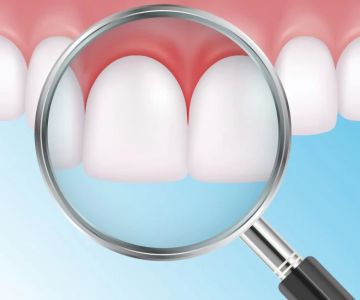Understanding the Risk of Disease Transmission Through Oral Contact
Oral contact is a common part of daily social interactions, including kissing, sharing utensils, or even dental visits. Many wonder if such contact can transmit diseases, and the answer is nuanced. Yes, certain infections can spread through oral routes, but understanding which diseases, how transmission occurs, and preventive measures can empower individuals to protect their health effectively.
The mouth is a complex ecosystem filled with bacteria, viruses, and fungi, some harmless and others potentially harmful. Pathogens responsible for diseases such as herpes simplex virus (HSV), human papillomavirus (HPV), and bacterial infections like streptococcus can be transmitted through saliva or direct mucosal contact. However, the likelihood depends on factors like the presence of open sores, immune system status, and hygiene habits.
1. Common Diseases That Can Spread via Oral Contact
One of the most widely known is oral herpes, caused by HSV-1, which spreads primarily through kissing or sharing drinks. Symptoms include painful cold sores around the lips. Another is HPV, linked to oral cancers, which can be transmitted through oral sex. Bacterial infections, such as streptococcal pharyngitis (strep throat), may also be spread by sharing utensils or close contact.
In addition to viruses and bacteria, fungal infections like oral thrush can occasionally transfer, especially in immunocompromised individuals. Understanding these risks highlights why oral hygiene and safe practices are crucial.
2. The Role of Oral Hygiene in Disease Prevention
Maintaining good oral hygiene is a frontline defense against many oral diseases. Regular brushing, flossing, and dental check-ups reduce the buildup of harmful bacteria and lower the chances of infection transmission. Clean mouths also promote healthier gums and mucosal surfaces, making it harder for pathogens to invade.
Scientific studies show that people with periodontal disease harbor more harmful bacteria that could potentially be transmitted to others. Thus, managing gum health is not just about individual wellness but also about reducing transmission risks in social settings.
3. How Personal Behaviors Influence Oral Disease Transmission
Behavioral factors heavily influence whether diseases are transmitted orally. Sharing utensils, cups, or engaging in intimate kissing with someone who has an active infection increases risk. On the other hand, abstaining from such behaviors during outbreaks and practicing safe oral hygiene lowers chances significantly.
Healthcare providers often advise against sharing personal items and recommend open communication about any known infections to prevent inadvertent spread. Using barriers like dental dams during oral sex can also reduce transmission of HPV and other infections.
4. Oral Health and Systemic Disease Connections
Emerging research indicates that poor oral health and infections can have systemic impacts. For instance, bacteria from gum disease have been linked to cardiovascular issues and adverse pregnancy outcomes. Though not directly about catching diseases through oral contact, this connection underscores the importance of oral health maintenance.
Therefore, preventing oral infections also contributes to overall health, making good oral care essential beyond the mouth.
5. Real-Life Case: Managing Oral Infection Risks in Close Relationships
Consider the story of Emily and Mark, a couple who faced challenges when Emily developed recurrent cold sores. With open communication and precautions such as avoiding kissing during outbreaks and maintaining excellent oral hygiene, they successfully minimized transmission risks while maintaining intimacy.
Their experience demonstrates that understanding oral disease transmission and adopting preventive strategies can protect loved ones without sacrificing closeness.
6. Professional Advice and Resources
Dental professionals recommend routine oral health screenings, vaccination where applicable (e.g., HPV vaccine), and education about infection control. If you have concerns about oral disease transmission, consulting with your dentist or healthcare provider is crucial.
For personalized care and trusted recommendations on maintaining oral health and preventing disease spread, visit Dentistry Toothtruth. Their expertise supports you in making informed decisions to keep your smile healthy and safe.







 Westgate Dental Arts3.0 (2 review)
Westgate Dental Arts3.0 (2 review) Coventry Family Dental4.0 (247 review)
Coventry Family Dental4.0 (247 review) Familia Dental3.0 (1028 review)
Familia Dental3.0 (1028 review) Dr. Daniel S. Fife, DDS4.0 (31 review)
Dr. Daniel S. Fife, DDS4.0 (31 review) Dentistry At Suburban Square: Michael I. Wollock, DMD4.0 (1228 review)
Dentistry At Suburban Square: Michael I. Wollock, DMD4.0 (1228 review) Comfort Care Dental4.0 (1156 review)
Comfort Care Dental4.0 (1156 review) The Importance of Oral Health Education During Pregnancy for a Healthy Pregnancy
The Importance of Oral Health Education During Pregnancy for a Healthy Pregnancy Why Skipping Dental Checkups Can Lead to Bigger Oral Health Problems
Why Skipping Dental Checkups Can Lead to Bigger Oral Health Problems Best Tips for Brushing Your Teeth Properly for Healthy Gums: Essential Techniques for Oral Health
Best Tips for Brushing Your Teeth Properly for Healthy Gums: Essential Techniques for Oral Health Advantages of Porcelain Dental Restorations
Advantages of Porcelain Dental Restorations How Can Diabetes Cause Tooth and Gum Problems? Preventing and Managing Oral Health Issues
How Can Diabetes Cause Tooth and Gum Problems? Preventing and Managing Oral Health Issues Healthy Habits for Promoting Good Oral Health and Hygiene: Tips for a Healthy Smile
Healthy Habits for Promoting Good Oral Health and Hygiene: Tips for a Healthy Smile